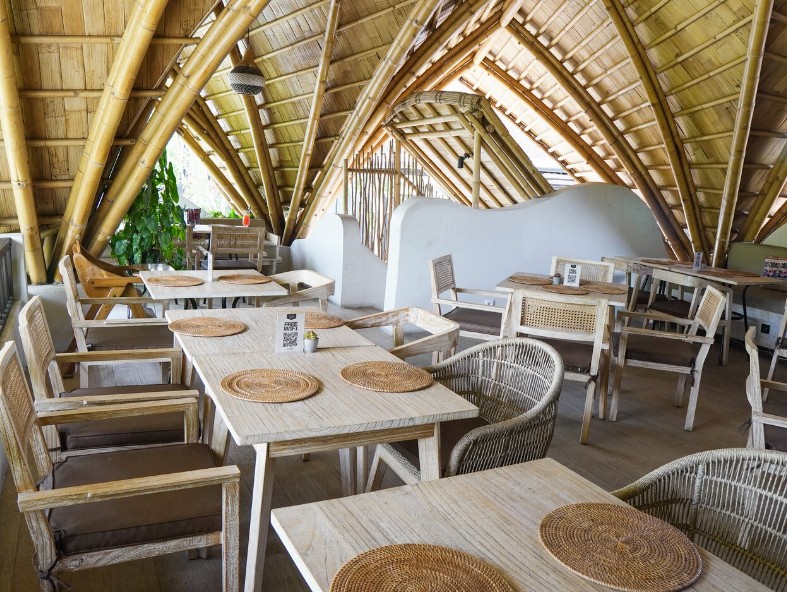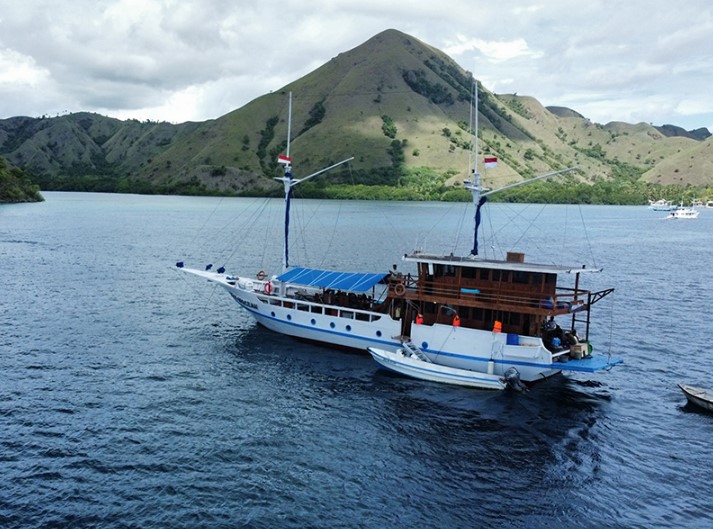TRANSCRIPT:
The Inside Story: Biden’s Road to Bali
Episode 68 – December 1, 2022
Show Open:
Unidentified Narrator:
U.S. President Joe Biden meets world leaders in Indonesia, while Vice President Kamala Harris visits Thailand for the APEC Summit. as the United States shifts focus to the Asian continent.
How will the U.S. hedge China’s growing influence in the region?
And what does it mean for Russia’s war on Ukraine?
Now on The Inside Story: Biden’s Road to Bali.
The Inside Story:
PATSY WIDASKUSWARA, VOA White House Bureau Chief:
From Phnom Penh, Cambodia, I’m Patsy Widakuswara, VOA White House Bureau Chief. I traveled here with President Joe Biden, the first stop in his trip to Southeast Asia.
From Phnom Penh, I’ll take you to Bali, then Bangkok, following Biden and vice president Kamala Harris as they attempt to navigate China’s influence in the region and broaden the coalition to isolate Moscow over its war on Ukraine. Stay with me, in this episode of The Inside Story.
In his first stop in Phnom Penh, Cambodia, at the U.S. – ASEAN summit, President Joe Biden reaffirmed to Southeast Asian nations that the U.S. is committed to “ASEAN Centrality” – the principle that regional engagements are driven by the ten-country bloc, not great power rivalry.
U.S. President Joe Biden:
ASEAN is the heart of my administration’s Indo Pacific strategy. And we continue to strengthen our commitment to work in lockstep with an empowered, unified ASEAN.
PATSY WIDASKUSWARA:
Political violence in Myanmar since last year’s military coup against Aung San Suu Kyi’s government is high on the agenda.
Leaders have warned Myanmar’s junta to implement ASEAN’s peace plan or continue being barred from the bloc’s meetings.
Indonesia’s President Joko Widodo, will assume ASEAN’s chair next year. He is expected to take a tougher approach than the current chair Cambodian Prime Minister Hun Sen.
Joko Widodo, President of Indonesia:
Indonesia proposed that the participation of non-political level representation of Myanmar should also be applied beyond summit and foreign ministers’ meeting.
PATSY WIDASKUSWARA:
Biden met with Hun Sen, the region’s longest-ruling leader, in office since 1985.
PATSY WIDASKUSWARA:
Activists have urged Biden to hold Hun Sen accountable for the country’s democratic decline.
But with Phnom Penh firmly in Beijing’s embrace, there may not be much that Biden can do.
During his meeting with Hun Sen earlier this week, Chinese Premier Li Keqiang pledged $27 million in development aid for Cambodia.
Bunna Vann, The Thinker Cambodia:
Whenever there’s pressure from the western country especially from the U.S., China will be at the back of the Cambodian government providing support. When the U.S. have put a sanction to the Cambodian government, China will provide the economic support to the Cambodian government.
PATSY WIDASKUSWARA:
There’s concern that Cambodia is secretly allowing Chinese warships to dock in its Ream Naval Base in the Gulf of Thailand.
Earlier this year Beijing funded to revamp the base, heightening fears among some ASEAN members concerned about Chinese expansionist ambition in the South China Sea.
From Phnom Penh, Biden traveled to Bali, Indonesia, for the G-20 summit with leaders of the world’s twenty largest economies. There too, divisions between major powers overshadowed talks.
I flew with the president on Air Force One as radio pool reporter. While I’ve traveled on the presidential plane around three dozen times in the past four years on the White House beat, this trip was special. I was going home.
As the first Indonesian American to return to her birth country with the U.S. president, I am incredibly proud and grateful for this milestone in my career. Plus, the kind crew of Air Force One gave me extra presidential candy for my family and friends!
For President Joko Widodo, hosting the G20 summit was meant to showcase Indonesia’s progress under his presidency.
But he faced initial boycott threats from Western leaders who insisted that President Vladimir Putin of Russia, a G-20 member, be excluded from the group as punishment for his invasion of Ukraine.
Widodo resisted. In the end, Putin chose not to come in person, and sent foreign minister Sergey Lavrov in his place.
I spoke with Indonesian finance minister Sri Mulyani, who was instrumental in navigating geopolitical tensions ahead of the summit, on the fallout of the war on Ukraine and the impact of the US-China rivalry in the region.
Sri Mulyani, Indonesia Minister of Finance:
From the very beginning we say that the theme of “Recover Together Recover Stronger” is very important. This is showing that the G 20 as the global economic forum, premier global economic cooperation forum should be able to address the issues [that are] economically important globally, that is how to recover together pick up stronger from the pandemic.
The second one we also as a presidency we also [reminded] the membership especially the ones who tried to say that ‘well, why don’t we just disinvite Russia?’ We said that the G20 was created to save the world from economic collapse during the global financial crisis. And that kind of cooperation certainly [is needed] not only [when] facing the global financial crisis back in 2008 but also when we are facing the pandemic in which our [countries] need to work together.
No single country can actually address the issue [of the] pandemic which is actually borderless. And then also the issues regarding climate change, which also require a lot of cooperation definitely in order for us to address the issues of this global challenge. So we reminded all the members that this kind of cooperation is non-negotiable for us. This forum should not be breaking.
PATSY WIDASKUSWARA:
I want to move on to another meeting that was considered partly Indonesia’s diplomatic success, which is the meeting between President Biden President Xi, which was some sort of modest lowering of tension in the region. From your point of view, from point of view of Indonesia and the region, what is the most concerning about the US China rivalry? Do you feel that there is a new cold war brewing in this region?
Sri Mulyani, Indonesia Minister of Finance:
So for all of us – I think ASEAN ten, the rest of the world – we have the interest to make the relationship work in a responsible way and that’s exactly what was communicated by the two leaders. That is going to create less damage to the very fragile global economic recovery at this very moment. And at the same time, also creating a much better – if they have any differences or any political objective then they should have the ability to discuss.
But for sure ASEAN and Asia in general, this is the region which is being seen as the brightest part of the world in terms of economic performance, relatively safe in terms of the security as well as the war or tensions in this case. And that’s allowing many of the ASEAN countries to actually catch up and build and develop so that they are reducing the poverty, creating prosperity and creating also a net positive benefit to the world.
PATSY WIDASKUSWARA:
In a diplomatic compromise to U.S. and European leaders, Indonesia invited President Volodymyr Zelenskyy to speak virtually despite Ukraine not being a member of the G-20, group of the twenty largest economies in the world.
VOA’s Ukrainian White House Correspondent Iuliia Iarmolenko spoke with U.S. National Security Council Coordinator for Strategic Communications John Kirby in Bali, about the peace plan that Zelesnkyy presented at the summit.
Iuliia Iarmolenko, VOA Ukrainian White House Correspondent:
One of the points in this 10-point peace plan was that after war ends, Ukraine wants to have a security guarantee, and one of the proposals is the so-called Kiev Security Compact. Does the United States support this format?
John Kirby, U.S. National Security Council Coordinator for Strategic Communications
What the United States supports, again, right now is a Ukrainian armed forces that can continue to defend their sovereignty and defend their people to defend their country and gain back the territory that Russia has taken or attempted to take in some cases. I’m not going to get ahead of where we are right now. And I’m certainly not going to get a head and jump into what negotiations would look like.
Obviously, we want the Ukrainian military to continue to succeed on the battlefield. And we are already talking with the Ukrainians about long term defense needs and what that might look like. But we’re just not at a point now where we can say definitively exactly what that’s going to look like.
PATSY WIDASKUSWARA:
Bali is world renowned as a tropical paradise. In another diplomatic win for Indonesia, this “island of the gods” was a fitting setting for the highly anticipated meeting between two superpowers – President Joe Biden and his Chinese counterpart Xi Jinping.
Amid heightened tensions both leaders stressed the need to manage differences and avoid conflict.
Xi Jinping, Chinese President:
We, as the leaders of China and the United States, should play a role in guiding and setting the directions so as to find the correct direction for the development of the relations between our two countries.
PATSY WIDASKUSWARA:
In the meeting that lasted over three hours Biden said he sought to lower tensions over Taiwan, a self-ruled island Beijing considers its breakaway province.
U.S. President Joe Biden:
I do not think there’s any imminent attempt on the part of China to invade Taiwan and made it clear that our policy on Taiwan has not changed at all, it’s the same exact position we’ve had. I made it clear that we want to see cross strait issues peacefully resolved.
PATSY WIDASKUSWARA:
But just days after Biden and Xi met to lower tensions, Vice President Kamala Harris visited Palawan Island in the Philippines, underscoring that an attack on the Philippines would invoke U.S. mutual defense. Palawan sits just 330 km east of the disputed Spratly Islands claimed entirely by China and partly by the Philippines, Brunei, Malaysia, Taiwan and Vietnam.
Kamala Harris, U.S. Vice President:
As the United States as long made clear, we support the 2016 ruling of the UN arbitral tribunal which delivered a unanimous and final decision firmly rejecting China’s expansive South China Sea maritime claims.
PATSY WIDASKUSWARA:
China, the Philippines, Brunei, Malaysia, Taiwan and Vietnam – have competing territorial claims in various parts of the sea, with Beijing claiming most of it.
Skirmishes have often occurred. Phillipines President Ferdinand Marcos, Jr.:
Ferdinand Marcos Jr, Philippine President:
The upheavals that we are seeing, especially, not only in the region, but especially in the region, these partnerships become even more important.
PATSY WIDASKUSWARA:
China shot back.
Zhao Lijian, Chinese foreign ministry spokesperson:
We are not opposed to normal exchanges between the US and the Philippines, but such exchanges should not harm the interests of other countries.
PATSY WIDASKUSWARA:
As China increases military activity in the region, Washington is seeking to repair ties with Manila after fraught relations under previous President Rodrigo Duterte.
Of Washington’s five treaty allies in the Indo-Pacific, the Philippines is closest to Taiwan and therefore central to U.S. plans to deter and respond to potential Chinese attack on the island.
Just how convinced is Biden that Xi has no plans to invade Taiwan? VOA’s Mandarin White House Correspondent Paris Huang asked U.S. National Security Council Coordinator for Strategic Communications John Kirby in Bali.
Paris Huang, VOA Mandarin White House Correspondent:
Did Xi Jinping promise President Biden anything during the meeting to make him say that?
John Kirby, U.S. National Security Council Coordinator for Strategic Communications:
As the President said, we don’t want to see these tensions result in the use of force. We want to see tensions over the Taiwan Strait solve peace peacefully. And we don’t want to see that status quo change unilaterally, we certainly don’t want to see a change by force.
The President feels very comfortable, that he had a candid, forthright conversation with President Xi. And again, we’re gonna have our teams now move forward to work at a working level on some of these issues.
PATSY WIDASKUSWARA:
While Indonesian President Joko Widodo as host insists that the G-20 is an economic, not a political forum, he could not escape geopolitical fault lines. Those lines literally exploded on the last day of the summit.
The mangrove planting ceremony by world leaders hosted by Indonesian President Joko Widodo during the Bali summit, was designed to highlight the G20’s climate agenda.
But an event ten thousand kilometers away caused late arrivals of NATO and G-7 leaders due to a hastily arranged emergency meeting to discuss the explosion in Poland that killed two people. While the blast was not caused by a Russian missile, the threat of the war in Ukraine spilling over to neighboring Poland – a NATO member – triggering the alliance’s collective defense principle and escalating the war, is real.
G-20 leaders concluded their summit with a statement that saying that “most” members “strongly condemned” the war in Ukraine, but that the forum was not the place for resolving security issues.
But no tensions exist between VOA journalists who covered the summits.
We sent our Russian, Ukrainian and Mandarin correspondents to Bali, as well as myself covering in English and Indonesian. And as you can see, there is no great power rivalry here, as we report for VOA’s global audience of 350 million.
Thanks for the great teamwork, guys, it’s been such a pleasure working with you, and with our VOA Khmer service in Phnom Penh during the ASEAN summit.
The G-20 Summit also boosted the Bali tourism industry that took a hit during the pandemic.
Delegations from around the world, stayed at the island’s luxurious resorts, just like this one where we, the White House press corps stayed at.
But the summit’s impact, is also felt by small business owners. Devianti Faridz, spoke with some of them.
DEVIANTI FARIDZ, Reporting for VOA:
Punia Giri, an owner of a batik clothing and textile company, traveled from Bandung, West Java, for a G-20 exhibit of 300 small and medium-sized enterprises, or SMEs, from across the country.
The “Future SME Village” is a designated area to promote Indonesian products within the enclave of five-star hotels where the summit is being held.
The exhibit opened several days ago, but Punia said it hasn’t attracted the crowds and revenues she expected.
Punia Giri, Kamisuka Batik Owner:
Our revenues have not significantly increased, but we have gained brand awareness. Previously, our Kamisuka Batik brand wasn’t recognized by foreigners. In Indonesia alone, it is known within limited groups of people. Since the G-20 Summit, the governor’s wife and deputy governor have started to promote our brand to Indonesians across the country.
DEVIANTI FARIDZ:
Punia says many foreign delegates have exchanged information after buying her clothing, and she’s optimistic that more customers will come after the summit ends.
The COVID-19 pandemic was hard for Ni Nyoman Sandat, who owns a small eatery in the Nusa Dua district. During the height of the pandemic, she had no customers. But as preparations for the G-20 Summit began, Sandat saw an increase in sales.
Ni Nyoman Sandat, Local Business Owner:
We felt a significant increase in our income after police officers, security personnel and event organizers started eating here. I’m not sure who exactly they were, but, apparently, my revenue rose because of them.
DEVIANTI FARIDZ:
Bali opened to international tourists several months ago, but the number has yet to return to pre-pandemic levels.
Wayan Suriawan, Ride-Share Driver:
I hope the G-20 summit would run smoothly and further improve tourism development because Nusa Dua district relies heavily on the tourism sector.
DEVIANTI FARIDZ:
Despite safety precautions, many local residents say they are proud that Indonesia holds the presidency of the G-20. They hope, in the long run, the meeting will promote peace and prosperity in a world struggling with the pandemic, food insecurity and political tensions among the superpowers.
Devianti Faridz, for VOA News, Bali.
PATSY WIDASKUSWARA:
With Biden returning to Washington, I left Indonesia for Bangkok, Thailand, where Vice President Kamala Harris led the U.S. delegation at APEC, the Asia Pacific Economic Cooperation forum.
She brought the message that the U.S. has an enduring economic commitment to the region. But with China a dominant trading partner and infrastructure investment force in the Indo-Pacific, how did that message land?
In Bangkok, I asked Thitinan Pongsudhirak, director of the Institute for Science and International Security at Chulalongkorn University in Bangkok.
Thitinan Pongsudhirak, Director, Institute for Science and International Security, Chulalongkorn University, Bangkok:
When it comes to trade and geo-economics the US is a little bit behind the curve because it pulled out of the TPP (Trans Pacific Partnership) and the TPP became the CP TPP excluding the US, but not including China.
The RCEP does include China, and now China has stepped it up by proposing the China ASEAN Free Trade Agreement 3.0 which is an upgraded version of the RCEP building on the earlier China ASEAN free trade agreement.
So this is something I think the US will be scratching its head, and it’s a big challenge to US policymakers of trying to match China’s latest geo economic maneuver.
But nevertheless, don’t forget, the US is still a major investor in the region, the stock of us investments do immense, very close to China, they take turns going back and forth.
And then in the high-tech industries, the US is a pretty dominant force reckoned with. And then on the flow of trade, investment, high tech, innovation, digital trade, you know, the US has a lot to offer.
PATSY WIDASKUSWARA:
It’s no secret that the common view in the region is that Beijing is your bankroller, and Washington is your security provider to maintain stability and peace. But its top leadership is warning that the U.S. military must change if it wants to stay ahead of China and Russia. Here’s more from VOA Pentagon correspondent Carla Babb.
CARLA BABB, VOA Pentagon correspondent:
While the United States was busy fighting wars against Islamist extremists in Afghanistan and the Middle East, Russia and China steadily built up their military power.
Russia now flexes those military muscles in neighboring Ukraine, and the Pentagon has dubbed China its greatest threat to national security.
Speaking exclusively with VOA, Gen. C.Q. Brown Jr, the chief of staff of the Air Force, is warning the United States cannot be satisfied with its position as the world’s superpower if it wants to stay that way.
C.Q. Brown Jr., US Air Force Chief of Staff:
Our adversaries have continued to advance their capabilities at the same time we’ve been using some of the same capabilities we’ve been using for the past 30 years. The threat we were up against, it’s not the threat we’ll see in the future. And that’s why we’ve got to, we’ve got to change.
CARLA BABB:
China has more active-duty military personnel than the United States and has spent decades advancing its weapons. In the last few years, the Chinese military has built new aircraft carriers, new fighter jets and a massive missile arsenal.
Melanie Sisson, Brookings Institution:
It’s fair to acknowledge when progress is made by those potential adversaries, but that fact alone shouldn’t induce any panic in the United States. We are still relatively very, very capable; the best military force in the world.
CARLA BABB:
Army veteran and defense analyst Bradley Bowman points out that China has methodically and deliberately chosen modernizations specifically designed to defeat the United States in East Asia, the most likely battlefield should war break over Taiwan.
And that could make American ports and bases in the region vulnerable to Chinese attacks.
Brad Bowman, Foundation for Defense of Democracies:
The reality I see is in capability after capability the Chinese have developed capabilities that are as good, in some cases better than ours. America’s military edge in the Pacific has absolutely eroded and I continue to see China sprinting, while it often seems like we in Washington are slumbering.
CARLA BABB:
The Air Force unveils its newest stealth bomber, the B-21, next month. The B-21 will replace America’s B-1 and B-2 bombers, which have been around since the 1980s.
C.Q. Brown Jr., US Air Force Chief of Staff):
This is why I’m going to modernize, because we have some aircraft that are, from a maintenance standpoint, are a little harder, more difficult to maintain (with) diminishing resources for parts. And that’s the aspect of being able to modernize so we increase the aircraft availability and ensure we have a ready force.
CARLA BABB:
But ready also for what has yet to play out.
U.S. officials say China wants the ability to invade and hold Taiwan by 2027. And China has said it aims to be a world-class military capable of “fighting and winning wars” by 2049.
CARLA BABB, VOA NEWS, THE PENTAGON.
PATSY WIDASKUSWARA:
That ends our journey through three Southeast Asian countries – Cambodia, Indonesia and Thailand on this episode of Inside Story, where I hope we’ve shown you how the region aims to navigate U.S. – China rivalry and geopolitical tensions from the war in Ukraine.
For the latest news on the region, log on to VOA News dot com. For all things White House – related, follow me on twitter at P-Widakuswara…
From Bangkok. I’m Patsy Widakuswara. We’ll see you next week, on the Inside Story.
###





More Stories
Chinese Tourists Flock to Bali After Three-Year Hiatus
In Bali, snakefruit farmers hope agroforestry bears fruit as island reopens
Find The Best Snorkeling Adventure On This Remote Indonesia Island